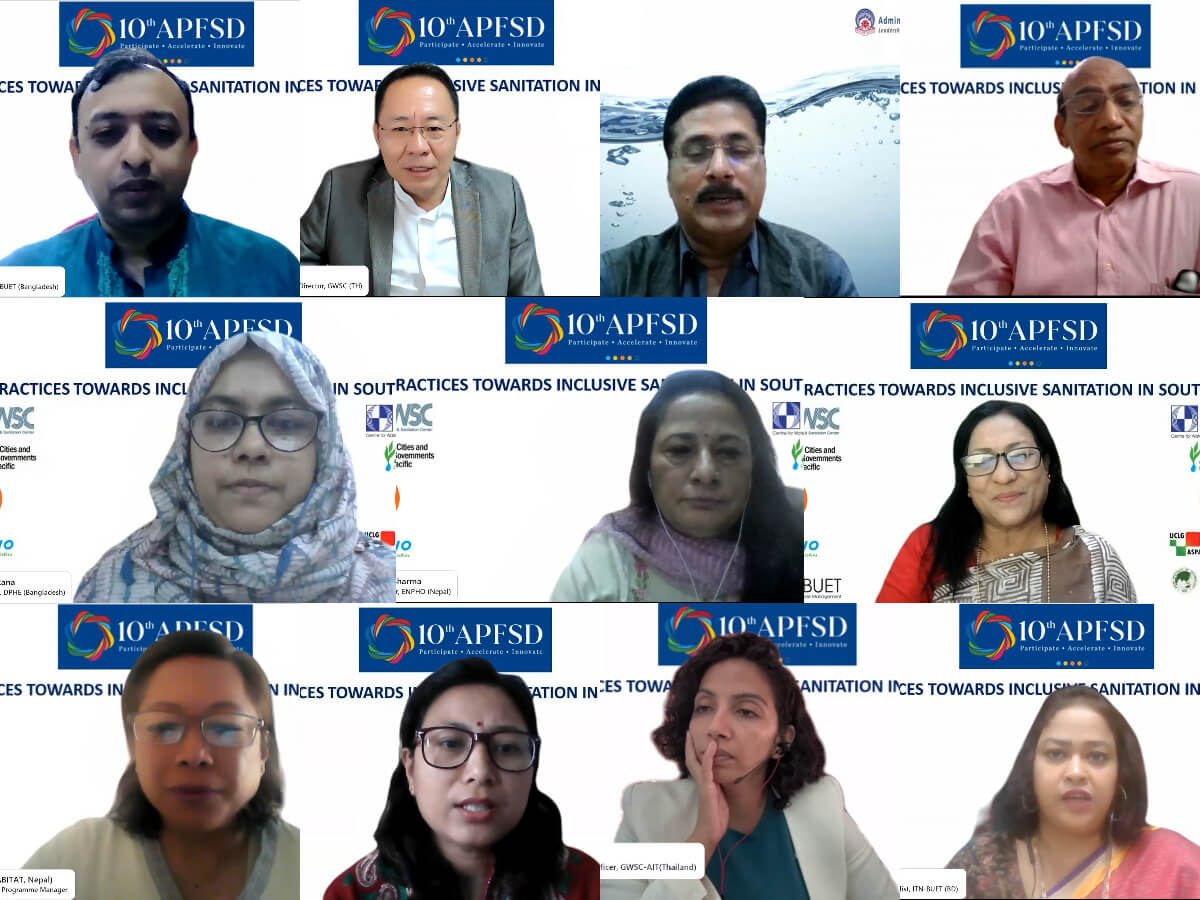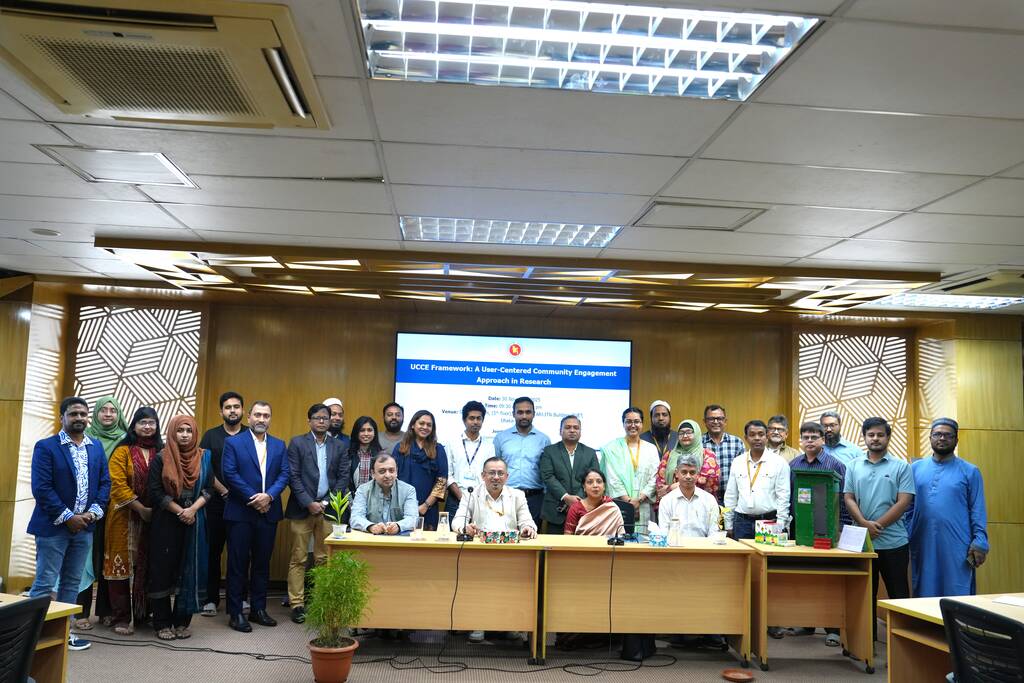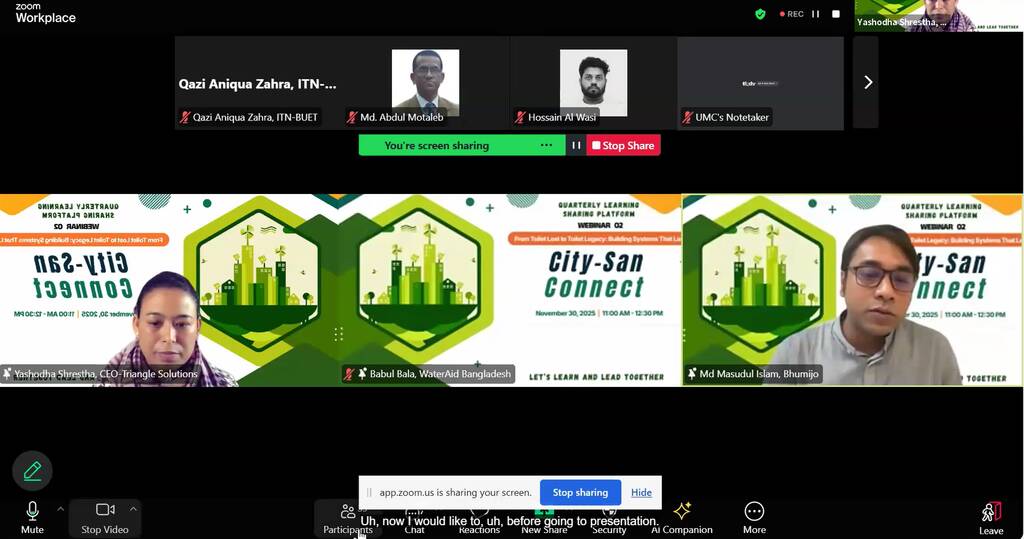Amidst the pressing need to address city-wide sanitation solutions across South Asia, partners from the region convened virtually at a side event on the 10th Asia-Pacific Forum for Sustainable Development Forum (APFSD) to highlight effective and scalable models to upscale inclusive sanitation. The webinar aimed to promote discussion and knowledge-sharing among experts and practitioners to advance the narratives on inclusive sanitation and establish a platform for peer-to-peer learning.
Co-organized by ITN-BUET (Bangladesh), ENPHO (Nepal), Dasra (India), GWSC-AIT (Thailand), and UCLG ASPAC (Indonesia), the virtual event was held on March 29, 2023 where more than 200 of participants ( approximately 130 male, 70 female) from around 14 countries participated.
The event started with a welcome address from Dr. Thammarat Koottatep, Professor at the Asian Institution of Technology, Thailand, in which he emphasized the importance of CWIS for achieving inclusive sanitation in urban settings across the South Asian region.
The keynote speeches were delivered by Dr. Srinivas Chary Vedala, Professor, Administrative Staff College of India; Ms. Bhawana Sharma, Executive Director, ENPHO, Nepal and Dr. Tanvir Ahmed, Director, ITN-BUET. Dr. Chary shared some practical learnings and solution towards urban sanitation in the context of India remarking that CWIS indicators must be integrated into existing municipal monitoring system to support decision-making and performance evaluation.
Dr. Ahmed highlighted the CWIS collaboration ecosystem and initiatives in Bangladesh. He stated that “To accomplish the successful implementation of CWIS principles, partners with diverse set of skills are required which is not possible unless there is a collaborative ecosystem”.
Ms. Sharma addressed the existing gaps and challenges involve among in different level of stakeholders e.g., decisions makers, implementers, private sector provider and frontline workers.
In the panel discussion, Mr. Ramisetti Murali, Founder-Director of MARI, emphasized the importance of health and safety for sanitation workers by addressing three essential aspects: the empowerment of sanitation workers, the responsiveness of urban local bodies (ULBs), and the responsibility of other stakeholders. He argued that leadership development and creating a collective platform for solidarity and mutual support can help workers become more aware and educated on legal provisions, which will accelerate the progress towards ensuring the safety and dignity of sanitation workers under the CWIS component.
Ms. Sudha Shresta, Chief Technical Advisor and GSF Program Manager, highlighted the importance of regional collaboration in achieving milestones for safely managed sanitation. During her presentation, she also introduced CWISAN, where UN Habitat is playing the role of secretariat, and discussed the opportunities that CWIS can bring to Nepal.
Ms. Dilruba Farzana, Executive Engineer, DPHE, Bangladesh emphasized the importance of having data on the status of safely managed fecal sludge for planning and designing effective service delivery. To support this, she showcased DPHE’s SanBoard, an online sanitation information platform that can serve as a useful tool for advocacy and decision-making.
Ms. Isha Basyal, Deputy COO, GWSC-AIT, Thailand emphasized the importance of regional collaboration to scale the learnings from CWIS. She stressed that there is a high demand for accelerated efforts in planning, designing, implementing, monitoring, and evaluating CWIS, and regional collaboration is needed to meet these needs.
As a guest of honor, Ms Zakia Sultana, Honorable Mayor of Panchagarh municipality highlighted the women participation in sanitation in Bangladesh. Ms. Rosy Singh, Project Manager, ENPHO remarked that the organizational support and strong teamwork is very crucial for female empowerment in WASH sector.
At the end, Ms. Makfie Farah, knowledge management specialist, ITN-BUET and moderator of the session thanked everyone on behalf of the organizer for their inputs and active participation.
The webinar concluded on a positive note, with participants expressing their gratitude for the opportunity to engage in meaningful discussions and exchange knowledge with experts and practitioners from different countries. It is hoped that the insights and lessons shared during the event will help accelerate progress towards achieving inclusive sanitation and serve as a foundation for continued collaboration and peer-to-peer learning among stakeholders in the sector.






